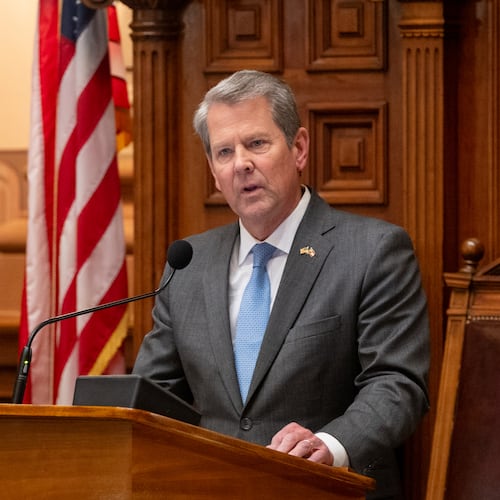A legislative panel Wednesday approved a plan to expand mental health services in Georgia.
House Bill 1013 would require insurance companies to cover mental health care the same way they cover physical health, establish state grants for outpatient treatment and take other steps to improve care. House Speaker David Ralston, R-Blue Ridge, called it “just the beginning of what I expect will be a multiyear conversation” about mental health.
“This is not a partisan issue,” Ralston told the House Health and Human Services Committee, which approved the measure. “This is not a geographic issue. This is not an income issue.”
The move to expand mental health services comes as overdose deaths are rising in Georgia, along with suicide deaths in rural areas. And it comes as the Georgia Department of Behavioral Health and Developmental Disabilities has lost nearly 1,100 of its 3,837 employees over two years. The staffing shortage meant 185 psychiatric hospital beds couldn’t be filled.
HB 1013 would implement recommendations from a bipartisan committee that examined ways to improve mental health care. The bill seeks to increase the number of mental health professionals in Georgia, give first responders help when they’re called to a mental health crisis and improve mental health data and transparency.
Among other things, the bill would:
- Require private insurers to submit annual reports about their compliance with a federal law requiring parity in coverage between mental and physical health. HB 1013 also requires the state insurance commissioner to monitor companies’ compliance and report on the results.
- Require state agencies to establish grant programs for outpatient treatment and for accountability courts that serve mental health patients and substance abusers.
- Make it easier for people to be involuntarily committed for an emergency mental health evaluation. Law enforcement officers would no longer be required to witness someone committing a felony to detain and involuntarily commit that person.
- Establish a task force to find ways to keep mentally ill offenders out of jails and detention facilities.
- Study government reimbursement rates for mental health care in other states.
HB 1031 would cost an estimated $29.7 million a year to implement. Funding for the measure must be approved separately in the state budget.
Ralston has made HB 1013 his top priority of the legislative session. It also has the support of Gov. Brian Kemp, lawmakers from both parties and mental health advocates.
The bill now goes to the House Rules Committee, which will determine whether it gets a vote by the full House of Representatives.
About the Author
The Latest
Featured


